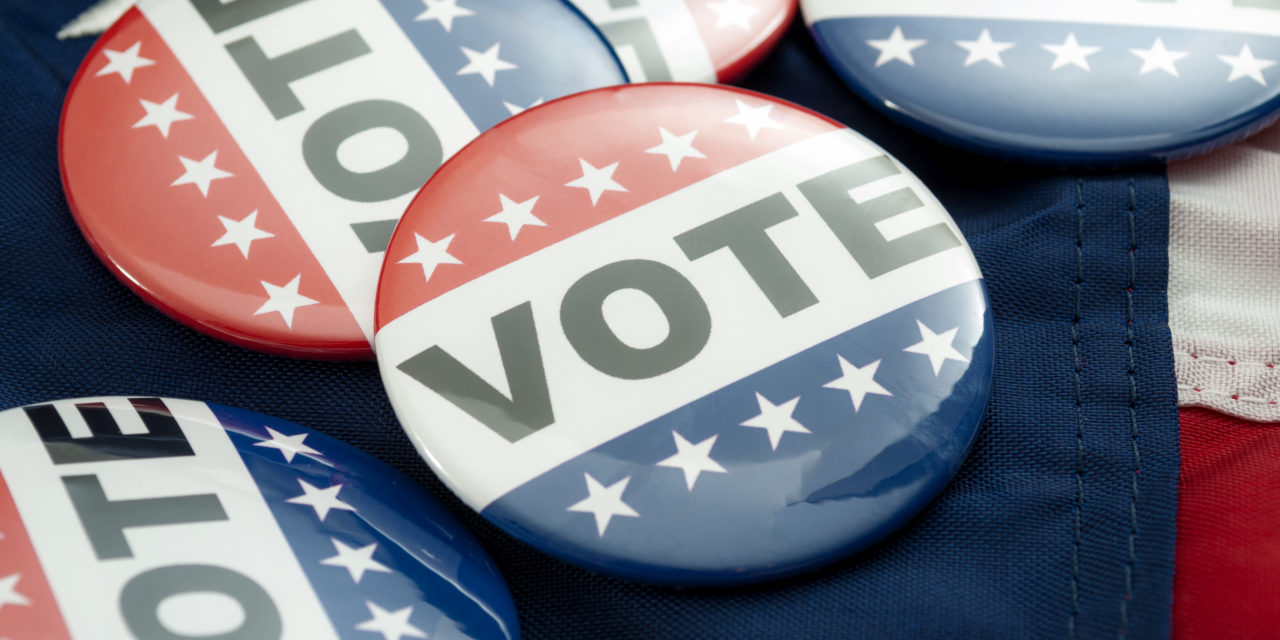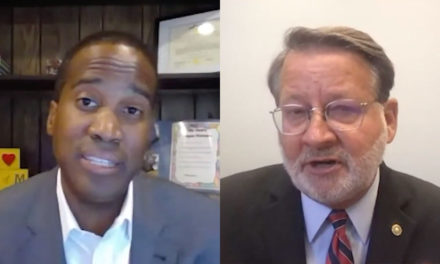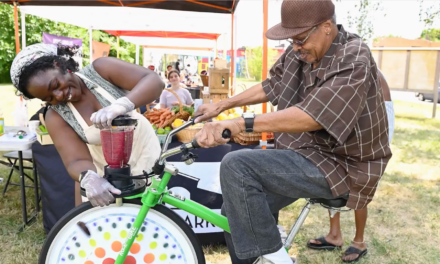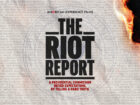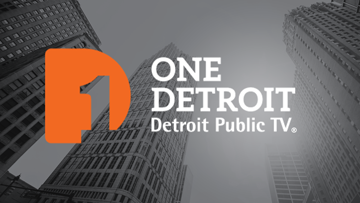Can I still register to vote?
Sharon Dolente, ACLU Voting Rights Strategist: So there is a way for voters or eligible citizens who want to become voters to register every day of the year all the way up to eight p.m. on Election Day. It is easier if voters do it sooner. So if you register between now and October 19th, you can do it online you can do it in person and you can do it by mail. After that date starting on October 20th you can still register, but you need to go in-person to your city or township clerk’s office and provide what’s called proof of residency. So that could be a driver’s license or some form of photo I.D., but it could also be something like a utility bill or a pay check or bank statement or a government document. So that’s the first piece making the voter registration system much more accessible and making sure that that system is really open and available for citizens all at all times through the year. The second major change, which ended up being hugely important this year because of the pandemic, is the ability to vote by absentee ballot. That’s what we call it here in Michigan, that is our system. We’ve had it for a very, very long time, but up until the passage of proposal three, only some voters were allowed to utilize an absentee ballot. With the passage of proposal three, now, any registered voter can vote by absentee ballot. And that’s really breaks down into two things. Voters can either vote by mail, meaning they can request and receive and then submit their absentee ballot all through the mail or do part of that through the mail and part of it in person. And then the second major way that they can do that is just to do that all the whole process or again, some portion of the process in-person at their city or township clerk’s office. So those are the two major changes that made voting much more accessible. It has become really important this year. I think the third one that a lot of voters will utilize is the fact that straight party voting is again available on all ballots this year.
Where can I go for one-stop voting registration?
Sharon Dolente, ACLU Voting Rights Strategist: Michigan now has the opportunity for citizens to register and vote all in one visit to their city or township clerk’s office or what’s called a satellite office. And I’ll talk more about what that is in a second. But what it means is that someone who needs to register for the first time in Michigan or someone who needs to update their registration can go into one of these offices, the clerk’s office or satellite offices. They can handle their registration paperwork and then they can vote their ballot early before Election Day, all in one visit. They can do it, it was starting on September 24th and it’s all the way through all the way through November 2nd at 4:00 p.m. if you are are already registered to vote. But if you need to register, that goes all the way through to 8:00 p.m. on Election Day. So going back to what I mentioned a second ago about what this concept of a satellite office is. So a satellite office is just what the name suggests. It’s another office established by your city or township clerk to process and serve voters. So in a presidential election, we have more than five million, perhaps more than five and a half million voters that will participate this November. And that’s a tremendous demand. And so the existing offices of some Clerks offices just isn’t enough. And so they’re adding additional office spaces where they can serve voters.
What if someone tries to intimidate or deny me the right to vote on Election Day?
Sharon Dolente, ACLU Voting Rights Strategist: So voters who appear to vote on Election Day should have an excellent customer service experience. We should have a voting system that works for everyone, but they should know that if they have any sort of challenge or problem that help, help is there.
Number one, if you have some sort of issue at your polling location, you should turn and figure out whether or not you can tell one of the workers, they’re called election inspectors, that are running the election in that poll. If there’s some sort of problem and someone is, you know, bothering you or were talking to you and you don’t want to be talking to them, you could report that to the to the workers in the polling location.
But if the worker is the problem, the next thing that you could do is report it to your city or township clerk. If neither of those things feels right for you or neither of those things work for you, it’s really important that you know that there is a nonpartisan election protection hotline that voters can call any day, any time. The hotline is actually operating 365 days a year. In fact, it’s operating right now. Twelve hours per day right now, five days a week and then some additional hours on the weekends. And it is getting 20 times the amount of calls that we got in our last presidential election year, 2016. So with all that, what is the phone number? The phone number is 1-8-6-6 OUR VOTE, that’s O-U-R vote.
And the the actual numbers for that are (866)687-8683.
And one more piece of really important information is that the there are also nonpartisan election protection hotlines in other languages. So, if you visit MichiganVoting.org at the very top of the main page, you can click on a link for multiple other hotlines in Spanish, in Arabic, in Asian languages.
So there’s really a great array of ways that people can get assistance if they have a question or if they see any problem, either on Election Day or before.
Will my vote actually count?
Sharon Dolente, ACLU Voting Rights Strategist: I think the number one thing that I can say to folks is that your voice matters in this election. Every single one of you, I feel very strongly as a voting rights advocate that elections, every election is our ability as the people of this government.
That is of, by and for the people to make our mark, to make our power known, to make our voices heard, whatever the phrase is, that is meaningful to you. This is your opportunity to weigh in on the policies and the issues that are affecting you and your family in your neighborhood, in your community and in your country. And so I really hope folks who will believe me when I say that, you know, what I believe, which is that every single one of your votes and your voices matter. It’s exactly why the ACLU pursued proposal three and was one of its biggest supporters, so that we could ensure more voices were heard in our democracy. And I’m inviting every single one of your listeners today to to make their voices heard in this election.
What’s different about this election vs. previous ones?
Heaster Wheeler, Assistant Secretary of State for Michigan: This voting environment is different, but your vote is safe. You’ve got several options. You can actually vote by mail. We’ve got Michigan’s new voting rights, which includes a no excuse absentee voting, same day, voter registration, and automatic voter registration. You have options in addition to going to the poll on Election Day, should you choose, we now have introduced ballot drop boxes. You can feel free to drop your ballot off at a dropbox. I know, for example, the city of Detroit has 30 drop boxes and satellite offices. The city of Pontiac, for example, has seven drop boxes. The city of Flint will have at least seven drop boxes. But we’re encouraging people in this COVID-19 environment to take advantage of no-excuse absentee voting and vote from the comfort of your dining room table, where you can take your time and study the candidates. You can study the proposals. You can study the non-partisan section. You can do it at your leisure and feel free to drop your ballot off in a post office mailbox or a ballot drop box or take it directly to the poll where, to the clerk in particular. And we’re encouraging people because of COVID-19 to take advantage of the various options that you have.
Two million absentee ballots have already been mailed to voters. September 24 by state law, is exactly 40 days before the November 3 Election Day. And by law, that’s when absentee ballots are required to be on their way. So if you yet to receive your absentee ballot feel free to go to Michigan.gov/vote. That’s Michigan.gov/vote. And that way you can confirm that you are, in fact, registered. You can confirm that, in fact, you have made application for that absentee ballot. You can also confirm if or not your ballot is on the way. And once we receive your absentee ballot, you can go to Michigan.gov/vote and confirm that your ballot has, in fact, been received on the day we process your absentee ballot. It will also show up at that web site, michigan.gov/vote.
What’s the biggest culprit this election season?
Hester Wheeler, Assistant Secretary of State for Michigan: Well, there are a couple of things that I really need to put extra emphasis on. The fact is, the biggest culprit in this election season is misinformation. The biggest former voter suppression is all of the negative conversation about their ballot not being counted properly or if or not, they should vote by mail or if at night they should trust the U.S. post office.
Jocelyn Benson, as you know, she serves as our Secretary of State. And what a pleasure for a brother like me to be on the team with a woman like her, largely because she consistently looks across the country for best practices. That’s why you’re learning about ballot drop boxes. But guess what? Those ballot drop boxes really take the politics out of the concerns we might have about the U.S. Postal Service. So we’re encouraging people. You can trust your mailbox, particularly up until about two weeks.
And we’re telling people after about October 19, don’t trust the post office because we know mail tends to be delayed in certain areas. We’re telling people to go directly to that drop box or take their ballot directly to the clerk’s office or if you have satellite offices in your particular community. There are several ways you can get your ballot to the clerk. There is no law that says you have to drop that absentee ballot into a regular post office mailbox. So we’re committed to ensuring that your ballot gets counted. That’s why we continue to promote our website. Michigan.gove/vote because if you have questions about where your ballot might be in the process, all of the information is right there and this is a first in Michigan history.
What common mistakes do people make marking their ballot?
Heaster Wheeler, Assistant Secretary of State for Michigan: Well, some of the more common mistakes that voters make is they over vote. They typically make the mistake of voting for two people in a category that says vote for not more than one or sometimes people might oh, they may vote for three candidates when it says vote for not more than two. Some people might make the mistake of leaving all that important signature on the return envelope. So we’re asking people to take their time, make sure they read the instructions. They’re pretty simple instructions. But, you know, the fact that we don’t have elections every week or we don’t have elections every couple months, it’s almost like a new process. So people need to be educated over and over and over about what is or or what is not the correct way to engage. So if you got questions about the process, if you’ve got questions on how to avoid making mistakes, please visit our web site, Michigan.gov/vote. It’s a very, very tremendous resource. And I think if you spent six or eight minutes on our web site, you are not likely to make any mistakes as it relates to voting.
Why is it important that every citizen vote?
Heaster Wheeler, Assistant Secretary of State for Michigan: This is the great equalizer. It gets no better than this. I believe the very best way to predict the future is to create it. Voting helps to create the future. Politics affect almost every aspect of your life. The number of days you have to go to school, if or not, you have to return bottles, for example. All of that is regulated through the legislative process. I also believe that there was one day of the year where everybody is equal and that day is called Election Day. In this particular environment, because we’ve got these new voting rights and the fact that the election season has already began. Now, what used to be referred to as Election Day is, in fact, election season. I don’t believe anybody should live beneath their privilege. And I know the impact that voting and politics have on your life. You don’t have power if you don’t use it, voting is your power. There is a lot of energy all across America. The streets of America have erupted into protest and demonstration over racism and rogue policing. You’ve got young people, black and white, red and yellow, who are saying who are fighting for equity, fighting for fairness. And we’re encouraging organizers and community leaders to help harness that energy you see in the streets of America and help people move from agony to action, help people move from protests to power. Voting is in fact your power.

